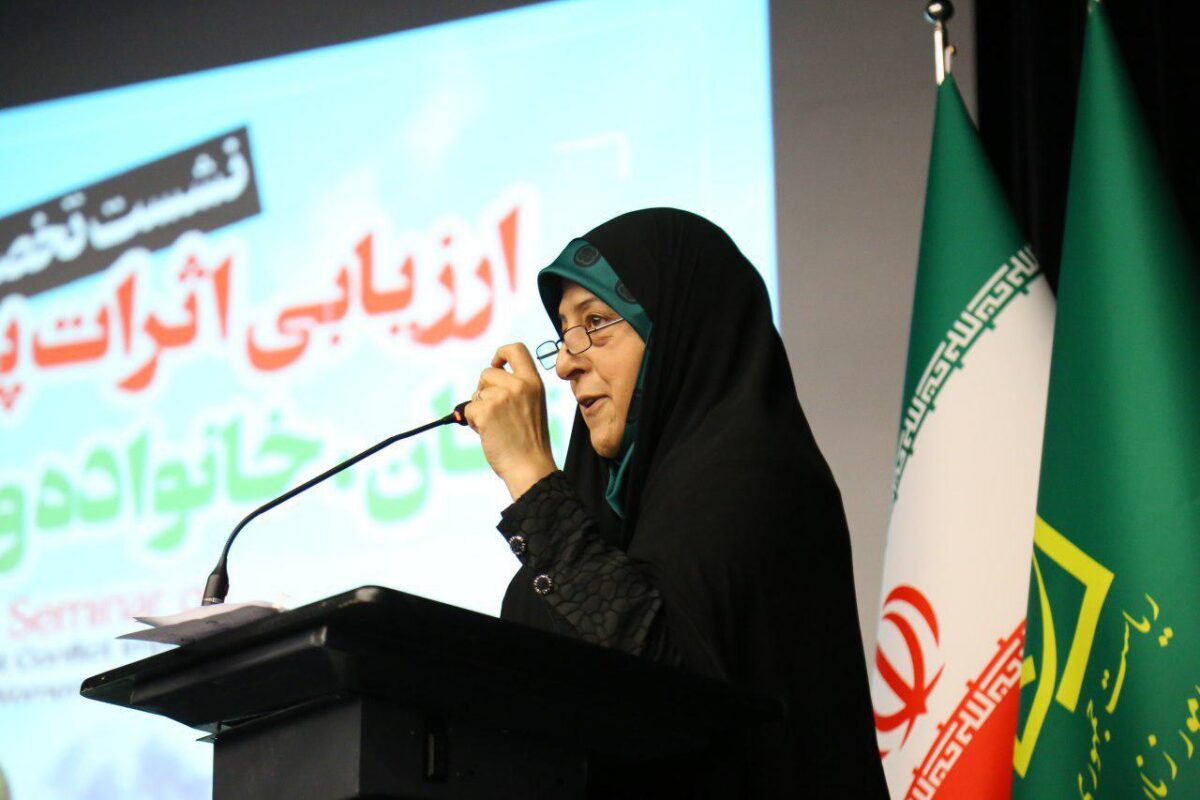Ebtekar, the current VP for Women Affairs and a former chief of environment, made the remarks in an address to the International Seminar on Post-Conflict Effects on Women, Family and Environment held in Tehran Tuesday.
Besides physical wars, she said, other types of war could also have harsh consequences for women, family and environment, including the economic war waged by the US against Iran.
The vice president said the tightening of anti-Iran sanctions in 2011-2012 led to aggravated air pollution in some Iranian cities, due to lack of high-quality fuel inside the country.
Ebtekar said the latest wave of sanctions imposed by the US on Monday could have similar consequences.
The vice president further noted the long-term effects of the war on the environment and water resources are often overlooked, because the human toll is so saddening that we forget about other things.
Ebtekar said the Middle East is currently the scene of various conflicts, particularly Yemen, which is the most heart-breaking example of the devastating consequences of war.
The vice president said the Yemen war and its impact on environmental degradation, which has led to widespread famine and cholera in the county, has made life really difficult for millions of women and children.
She said the seminar seeks to inform the people of the effects of war on women and family and how degradation of the environment aggravates this situation, and the role women can play in promoting peace and protecting the environment.
Post-Conflict Situations
Barbara Rizzoli, the deputy head of the International Committee of the Red Cross’ delegation in Iran, also told the conference that the post-conflict situation presents a variety of situations that needs to be addressed in different manners.
One of the most dangerous situations is weapon contamination, when the land needs to get free of mines and other weapons so people can safely live on them, she said.
Rizzoli said another situation is the return of the displaced, when infrastructures and economic units needs to be created so the environment becomes conducive to those who have ran away.
The ICRC official said the family reunion is another situation that needs to be dealt with following the end of a war.
Rizzoli said the family separation, which happens during conflicts for a variety of reasons, is a plight that if not managed acts like a cancer that devours the fabric of the society.
“The plight of the missing does not only concern first degree family members, but also concerns a wider circle … the society in general,” she said.
“Out of my personal experience, I can tell you that to the families of the missing … the conditions of their loved ones is worse than death,” she said.
“So that’s why it’s very important to take initiatives to try to understand and investigate and give answers to these people. This is a scar that if not treated will never heal,” Rizzoli said.
The ICRC official said it is of utmost importance to provide people with ways to communicate with each other so they can locate their families and restore family links.
UN-Iran Cooperation Rising
On the sidelines of the conference, Ugochi Daniels, the United Nations Resident Coordinator in Iran, told IFP News that she was pleased to attend the seminar, as it was an opportunity to raise very important and “heartrending” issues concerning families and environment.
The conference’s purpose was to sensitize people and urge officials to take action to prepare for post-conflict situations and prevent consequences from affecting the people, she said.
Daniels said she and Ebtekar have held talks about how the UN and Iran can cooperate to counter such issues in Iran and neighbouring countries.
“The UN is playing a very active role. We have a five-year partnership agreement and in that agreement one major area of focus is environment and working with the government regarding issues such as drought, water management, and sand and dust storms,” she said.
Daniels said there are also regional issues that Iran is dealing with along with its neighbours, which can lead to serious problems If not properly managed.
“That’s the UN’s role to bring together all the countries involved and to support dialogue and exchange of information on possible solutions,” he said.
Valuable Seminar
Ian Biggs, the Australian ambassador to Tehran, said he was pleased to know that several Iranian firms have cooperated to hold the valuable seminar.
“This seminar helped manage everything from wildlife protection to the role of women and children in post-conflict situations. These are all important topics,” he said.
“I hope it helps raise awareness among Iranians, if it receives enough media coverage in the Iranian media,” he said, pointing to environmental efforts by international organizations including the ICRC and UN.
